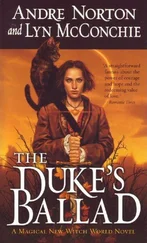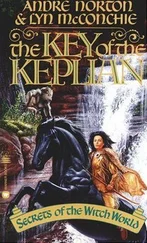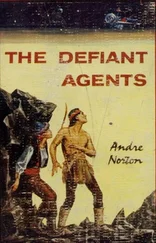Suddenly the anger left him, and the fear. He was no longer a stranger on a strange world. He was an archivist in an archive.
She took a better look at him and the local equivalent of a bright smile shone on her face. “May I help you, til?” she asked in a softer, sweeter voice.
“I am Balt, til,” he said. “I am the new librarian.”
She came out from behind the desk to offer the ceremonial toe touch. “I’m Embelsira, the head librarian, and I am very glad to see you!” Her tone was warm; she really seemed to mean it. “Everything’s in such a mess,” she went on. “I’ve needed help so very badly, so very long.” She looked up at him, for she was a good deal shorter than he. “So glad,” she murmured, “so very, very glad to see you, really.”
“Well, now you have help,” he said with quiet strength. “Where are the files?”
They were written instead of punched, of alien design, in an alien language, arranged according to alien patterns, but he understood them at a glance. “These will need to be re-organized from top to bottom,” he said.
“Yes, Til Balt,” she said demurely. “Whatever you say.”
Once every six months, Clarey went for a long weekend to visit his “Aunt Askidush” in Barshwat. Barshwat was the largest city on Damorlan; it was the capital of Vintnor—the greatest nation. Earthmen, Clarey thought, as he traveled there in the comparative luxury of a first-class compartment—as a rich nephew, he saw no real reason to travel third-class—were disgustingly obvious.
That first time, he was five hours late, and Blynn was a nervous wreck. “I was afraid you’d been killed or discovered or God knows,” he babbled, practically embracing Clarey in a fervency of relief. “I was afraid—”
“Come, come, Colonel,” Clarey interrupted, striding past him, “you know how inefficient Damorlant transport is, and I had to make two chain connections.”
“Of course,” the colonel said, wiping the perspiration off his forehead. “Of course. And you must be dead tired. Sit down; let me take your cloak—”
“How about the servants?” Clarey asked.
“This is their weekend off.” Blynn pulled himself together. “Really, my dear fellow, I’ve been in this business longer than you. I know what precautions to take.”
“Never can be too careful.”
“I see you’ve got yourself another cloak,” the colonel said as he hung it in the guest snap. “Very handsome. I’ve never seen one like it.”
“Yes. As a matter of fact, several people on the chains wanted to know where I’d got it.”
“Where did you get it?” asked Blynn, feeling the material. “Might go well as an export.”
“Afraid it couldn’t be exported. It’s a custom job, you see. Hand-woven, hand-decorated. It was a birthday present.”
The colonel stared at him.
“Well,” Clarey said, “if you didn’t expect me to get birthday presents, you shouldn’t have put a birth date on my identity papers. My boss baked me a melxhane—”
“Your boss!”
“The relationship between employer and employee is much different from the way it is on Earth,” Clarey explained. Reaching over, he flipped the switch on the recorder and repeated the statement, adding, “Embelsira is kind, considerate, helpful; she can’t do enough for me.” He put his mouth close to the mechanism. “Be sure to tell MacFingal that.”
“Now, now,” the colonel said, turning the switch off. He pushed a small tea wagon over to Clarey. “You must be starving. Have some sandwiches and coffee. I’m sure you’ll be glad to taste good Earth food again.”
“Yes, indeed,” Clarey said, trying not to make a face. “Er—shouldn’t we start recording while everything’s fresh in my mind?”
“Might as well,” the colonel said, flipping the switch again. “Pity we don’t have a probe here. Would save so much time. But, of course, it’s an expensive installation. All right, Clarey, over to you.”
Clarey choked on a mouthful of sandwich and hesitated. “Begin with your very first impressions,” the colonel urged.
“Well, the archives—the library—was in a real mess. Took me over two weeks to get it in even roughly decent shape. Three different systems of classification and, added to that—”
“Not so much the library, old chap. Leave the technical stuff for later. What I meant was your first impressions of the natives.... Is something wrong with the coffee? And you’ve hardly touched your sandwich. Maybe you’d like another kind. I have several varieties here—ham and cheese and—”
“Oh, no,” Clarey protested. “The one I have is fine. It’s just that I’m—well, to tell you the truth,” he confessed, “I’ve grown accustomed to Damorlant food.”
“Don’t see how you could,” the colonel said. “Nauseating stuff—to my way of thinking,” he added politely. He opened a sandwich and inspected the filling.
“You’ve only eaten at public places. Even the better restaurants don’t put themselves out for Earthmen, say they have no—palates, I guess the word would be. But you ought to taste my landlady’s cooking!”
“All this is being taped, you know. They’ll have to listen to every word on Earth.”
“If only I could convey the true picture through words. Her ragouts are rhapsodies, her soufflés symphonies—I’m using rough Terrestrial equivalents, of course—”
“The cuisine comes later, please. Over-all impressions first.”
“Well,” Clarey began again, “at first I was a bit surprised that you’d stuck me in a quarter-credit place like Katund. Naturally in a village the people’d be more backward than in the cities, so you’d have a poorer idea of how they were developing. Then I realized that you couldn’t help putting me there, that you probably couldn’t write a letter good enough to get me a job in any of the big centers. Embelsira said she was surprised to find me so much more literate than she would have expected from the letter.”
The colonel sat erect huffily. “I’ve never pretended to be a philologist. And, anyway, Damorlan isn’t like Earth. Here the heartbeat of the planet is in its villages.”
“Earth hasn’t any villages, so the comparison doesn’t apply.” Clarey cleared his throat. “Don’t you have anything to drink except coffee?”
“Tea?”
“That would be better. Do you know the Katundi have a special variety of tea, or something very like it, which is—”
“Tell me what they think of Earthmen,” the colonel interrupted desperately.
“Not much. What I mean is, nobody in Katund’s actually had any contact with them, though they’ve heard of them, of course. Every now and then there’s a little article in the Dordonec Bulletin from their Barshwat correspondent, and sometimes, if there isn’t any real news, he gives a couple of inches to the Earthmen.”
“Exactly how do they regard us?” the colonel asked as he spooned tea into the pot. “Demi-gods? Superior beings? Are they in great awe of us?”
“They regard us as visitors from another planet,” Clarey said. “They don’t realize from quite how far away we hail, think it’s only a matter of a solar system or two, but they’ve got the general idea. Don’t forget, they may not be a mechanical people, but they do have some idea of astronomy. They’re not illiterate clods.”
“What do they think of our spaceships? Great silver birds, something like that?”
Sighing deeply, Clarey said, “They think our spaceships are cars that fly through the sky without tracks. And they think it’s silly, our having machines to fly in the sky and none to go on the ground. There’s an old Dordonec proverb: ‘One must run before one must fly.’ Originally applied to birds, but—”
Читать дальше












